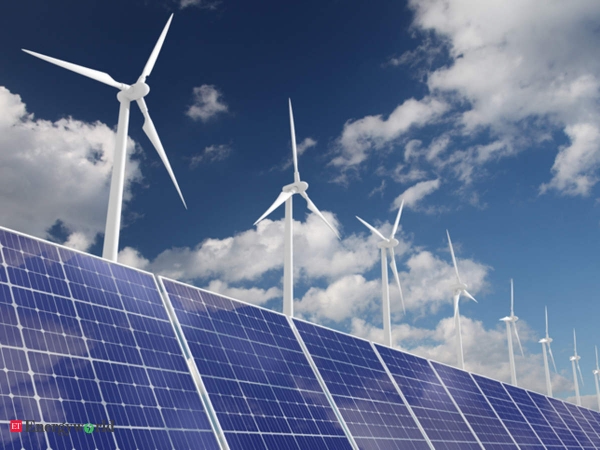Policy Stability in India will increase the Renewable Energy growth -IEEFA
The IEEFA report has successfully identified a few of the policies that are stifling the growth in the renewable energy sector of India as of now. Some of these
- by aditi verma 2020-02-14 06:40:13
The certainty of the policy will increase the percentage of domestic and international investment in India, as per a new report released on Thursday, 13th February by the Institute for Energy Economics and Financial Analysis (IEEFA).
The report, India's Renewable Energy Policy Headwinds - Recommendations for Urgently Accelerating Activity in the Renewable Energy Sector, found out some of the recent policy positions that have reduced the growth of this sector.
"India is one of the largest and fastest-growing markets of the World for renewable energy and power transmission," report author and IEEFA's Director of Energy Finance Studies Tim Buckley said in a statement.
"The Domestic renewable energy tariffs are currently two-third of the cost of domestic coal-sourced power costs and half of the new imported thermal power tariffs.

"India must be proud of this, and they must make complete use of this opportunity for the enhancement of energy security while also securing the deflationary domestic energy investments. "The opportunity cost of further delaying the electricity sector transition of India is way too high.
As per the report, "Using some of the policy tweaks, India may end up getting back on track to meet their target of 450 gigawatts of renewables by the year 2030."
The IEEFA report has successfully identified a few of the policies that are stifling the growth in the renewable energy sector of India as of now. Some of these include the imposition of the solar cell and module trade duty in the year 2017. The government is thinking of extending it beyond the year 2020.
The duty has not made any significant progress as they have not reduced the imports or even improved the competitiveness of the solar cells manufactured in India. On the other hand, it has slowed down the solar installs in the country severely. This was done due to the extra cost that was imposed and due to the confusion created on the delayed implementation.
Mr. Kashish Shah, the co-author of IEEFA's energy finance analyst said in a statement, "The uncertainty of the trade duty has been a major hindrance to India's renewable energy-momentum." He further added, "Instead of making the solar cells manufactured in India competitive by raising the price of the imported modules, the industry needs an assured offtake in the domestic markets, just like what had been achieved in the successful solar manufacturing tender made recently. It should also be incentivized for the purpose of exporting."
Some of the important policy areas that need to be attended to immediately include Better center-state coordination on the development of renewable energy and increasing the expansion of necessary transmission networks and balancing capacity (batteries, pumped hydro storage, demand response management, and more flexible thermal capacity).
As per Mr. Shah, "Renewable energy developers are right now dealing with delays and cost overruns while they wait for the central and the state governments to discuss with each other and streamline the activities. This is only jeopardising their project economics as well as stopping any further investment."
The report also finds out an important pre-requisite to further continue India's renewable energy investment ambition has been building out and modernizing the nation's national transmission grid to accelerate the amazing progress that has been achieved over the period of the last decade.
"India may attract $500 to 700bn in this new investment by the year 2030 hence this is a huge opportunity," Buckley said. "To make this happen, India's grid should be expanded properly.
"The continuing ballooning underfunding of the subsidies and the rising state-discom debt has resulted in hampering the abilities of the financial industry to finance the new renewable energy development."
The conclusion of the report is such that sovereign risk, policy risks, and the erratic discom payments are together creating unnecessary financial constraints for the renewable energy sector of India.
Picture Source: ieefa.org , ET energy World
Also Read: RBI Proposes setting up of an alternative Retail payments system
POPULAR POSTS
Loan EMIs to Drop as RBI Slashes Repo Rate - Full MPC December 2025 Highlights
by Shan, 2025-12-05 11:49:44
Zoho Mail vs Gmail (2025): Which Email Platform Is Best for Businesses, Startups, and Students?
by Shan, 2025-10-09 12:17:26
PM Modi Launches GST Bachat Utsav: Lower Taxes, More Savings for Every Indian Household
by Shan, 2025-09-24 12:20:59
$100K H-1B Visa Fee Explained: Trump’s New Rule, Clarifications & Impact on Indian Tech Workers
by Shan, 2025-09-22 10:11:03
India-US Trade Deal Soon? Chief US Negotiator Arrives in Delhi as Talks Set to Begin Tomorrow
by Shan, 2025-09-15 11:54:28
Modi Meets Xi: Trump’s Tariffs, Strategic Autonomy, and the Future of Asia’s Power Balance
by Shan, 2025-09-03 06:40:06
Google Claims Gemini AI Uses Just ‘Five Drops of Water’ Per Prompt, Sparks Debate
by Shan, 2025-08-22 12:34:27
RECENTLY PUBLISHED

Pine Labs IPO 2025: Listing Date, Grey Market Premium, and Expert Outlook
- by Shan, 2025-11-05 09:57:07

The Agentic Revolution: Why Salesforce Is Betting Its Future on AI Agents
- by Shan, 2025-11-05 10:29:23

Top 10 Insurance Companies in India 2026: Life, Health, and General Insurance Leaders Explained
- by Shan, 2025-10-30 10:06:42

OpenAI Offers ChatGPT Go Free in India: What’s Behind This Big AI Giveaway?
- by Shan, 2025-10-28 12:19:11

Best Silver Investment Platforms for 2025: From CFDs to Digital Vaults Explained
- by Shan, 2025-10-23 12:22:46





 Subscribe now
Subscribe now 